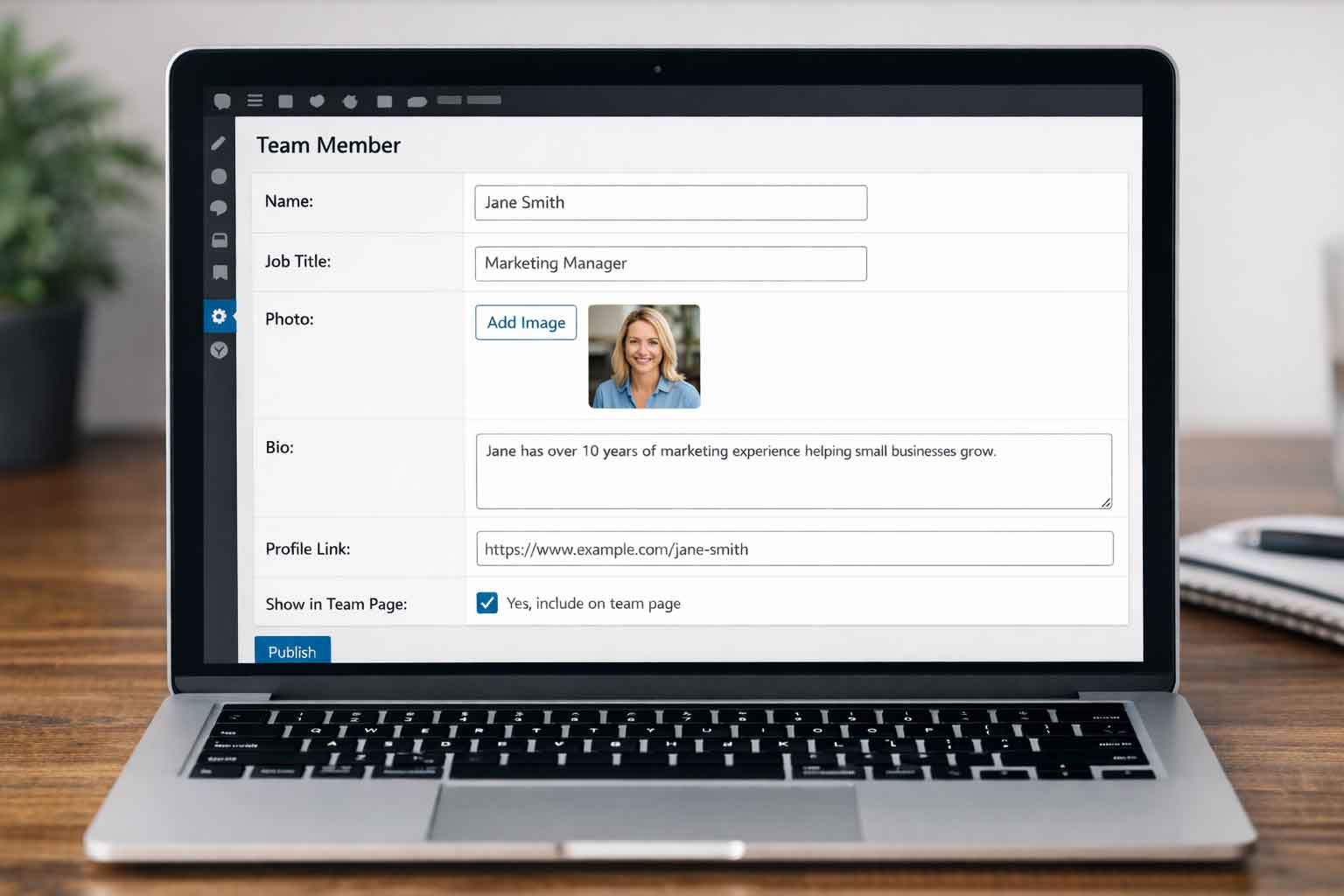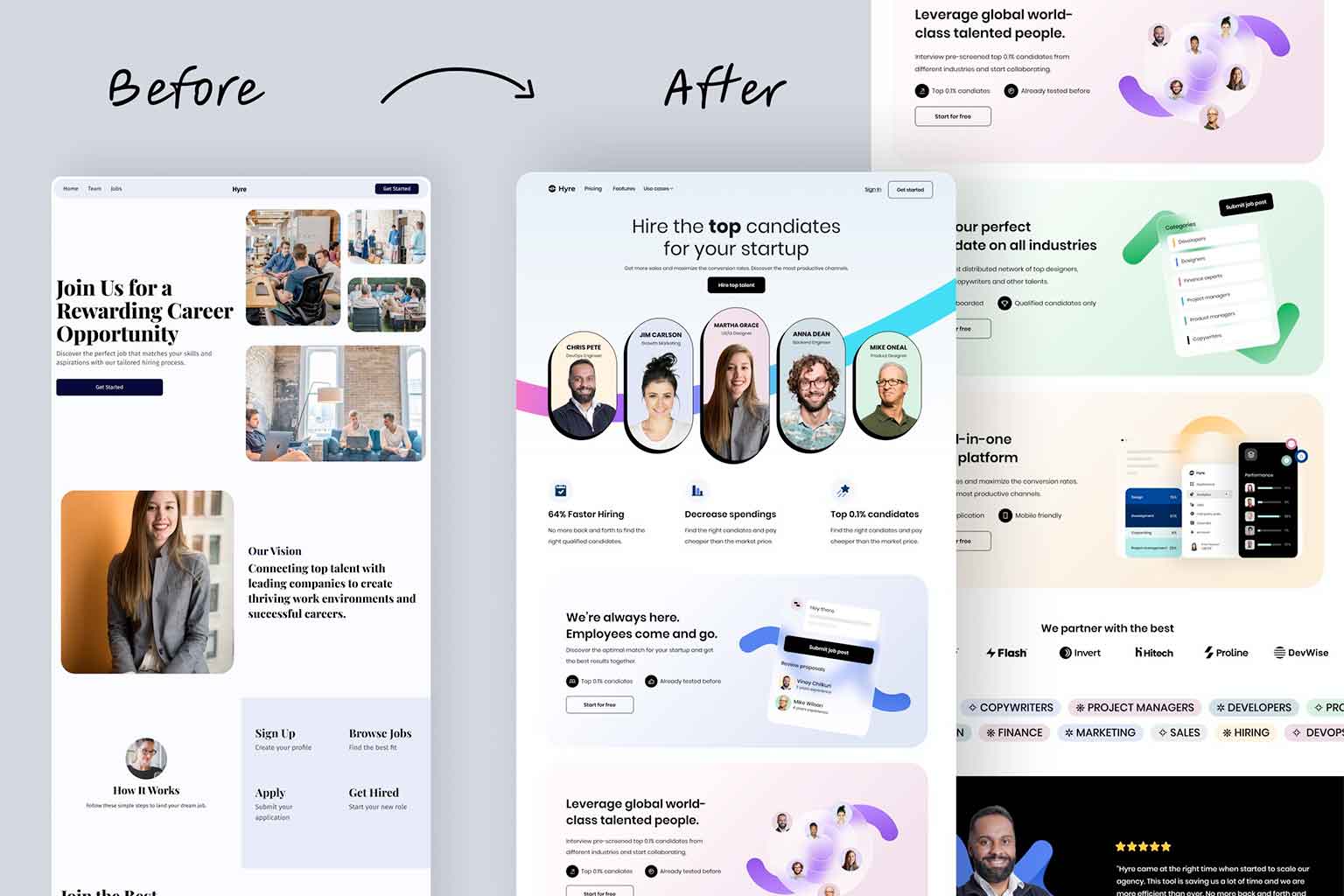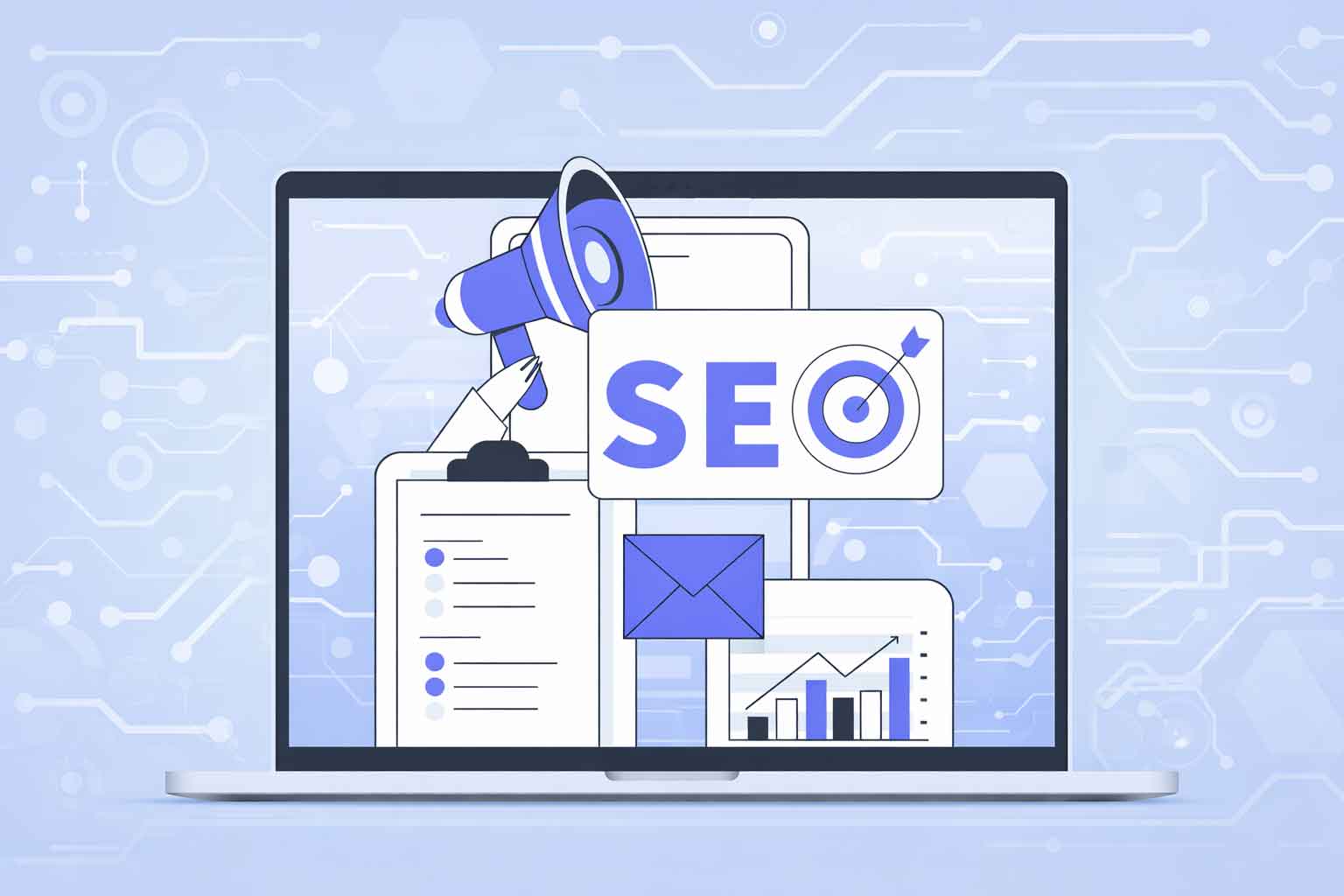Understand What to Do First Before Jumping Into SEO
Search engine optimization (SEO) is one of the most powerful marketing approaches for small businesses that are looking to increase their online presence. If you’ve ever wondered what is the first thing to do before doing SEO, you’re not alone – many business owners jump right in without preparing, and that can lead to frustration instead of results. It’s the marketing efforts that can drive more people to your website, help you show up and rank higher in desired Google searches, and ultimately connect your business with new clients or customers.
SEO is a great digital marketing avenue for any small business. But too often, if you jump straight in without a plan, you’ll likely end up wasting a lot of valuable time, energy, and money. There is more to SEO than just installing a WordPress plugin, sprinkling in a few random keywords in the content, or writing one quick and random blog article. Doing SEO correctly is about laying the groundwork and foundation so that when you do put your valuable time, energy, and money into SEO you can reap the benefits.
The best part is you don’t need to be a tech guru to do it right.There’s no need to learn advanced coding, and you don’t need to be at a writing level that would impress The New York Times. What really comes down to is understanding your industry, your business, your offering, your customers, and your goals.
One thing we’ve learned about doing SEO for small businesses is that the very first steps of SEO don’t happen inside Google. It doesn’t even start on your website.
Define Your Business Goals First
Even though it may sound simple, the first thing any small business needs to do before starting SEO is set clear goals. Without clear goals, any SEO efforts are little more than a shot in the dark.
An increase in traffic to your website sounds amazing! But traffic for the sake of traffic doesn’t mean it is going to help your business. Imagine doubling the number of visitors to your site, but none of them booking appointments or buying your product.Was that at all a win? Most businesses would say no.
Instead, think about what SEO success actually looks like for your business:
- Are you trying to book more meetings and consultations?
- Do you want to sell more products through your site?
- Would filling seats at your events or workshops be a sign of success?
Your SEO strategy should be directly tied to and supporting your larger business plan. SEO is one piece of your marketing toolkit. SEO shouldn’t be your whole markeitng plan, but it should complement everything else you’re doing for marketing your business.
Think of it like planning a trip with your family to go to Disney World. You wouldn’t fill up the car with gas and just start driving without having Orlando as your destination. You’d want to know if you’re heading in the right direction before you hit the road. SEO works the same way. The destination is your business goal, and the “gas” you start pumping in is the work you’ll put into your SEO efforts. Without knowing the destination or where you’re going, you’ll end up driving aimlessly.
Know Your Business Audience
Once you’ve set your goals and know what you’re working towards, the next step is to make sure you know exactly who you’re trying to reach with SEO. SEO works best when it’s focused on your targeted and ideal customers, not just anyone on the world wide web.
Start by breaking it down into the basics:
- Where are they located?
- What are their needs or challenges?
- What type of language or terms do they use when looking for your service?
For example, if you’re a dog groomer in Green Bay, it doesn’t make sense to try to rank nationwide for “dog grooming.” You’re not trying to bring in someone in New York or Los Angeles – you’re trying to reach dog owners in Green Bay, De Pere, and the surrounding communities. That’s where your effort should be.
The more you know your target audience, the more accurately you can research the keywords to use on your site. Instead of guessing blindly at what people are searching for, you’ll have a great starting point because you’ve thought about things like your community, your business, and your goals. And when your SEO matches what your customers are searching for, it’s a win for both sides.
The more you know your target audience, the more accurately you can research the keywords to use on your site. And if you’ve been asking yourself what is the first thing to do before doing SEO, knowing your audience is always at the top of the list.
Research Your Competitors
After defining your audience, take a look at what your competitors are doing. Far too often, this step often is overlooked entirely. Researching your competitors (or even partners), can be one of the most educational and valuable parts of your SEO prep work.
It can be easiest to start with your local competitors. It wouldn’t hurt to also do some research on a larger statewide or even national level. By doing this, you’ll get a sense of the keywords they use, the kind of content they write, and how their websites are structured.
Here are a few places to look:
- The content on their website – what are they focusing on?
- Their reviews – what are people praising, and what complaints keep popping up?
- Their site navigation – is it simple and easy to use, or cluttered and confusing?
Even their Google Business Profile can give you clues about what they’re prioritizing.
Think of this like scouting before a big game. You want to know your competition’s strengths and weaknesses so you can play smarter. At Full Scope Creative, this is something we include in our SEO audits and consultations – because once you know what the other guys are doing, you can do more and do it better.
Audit Your Website First
This is the part many small businesses miss: before you start pouring effort into SEO, you need to make sure your website itself is ready.
A website audit is like giving your site a health check-up, just from an SEO standpoint. This audit or review doesn’t need to be overly complicated or intense. You should look at a few key areas with your website:
- Load time and performance: if your site takes too long to load (more than 2 seconds), people will leave before they even see your website content, much less buy a product or book a meeting..
- Mobile-friendliness: over half of all Google searches happen on a phone or mobile device. This means that if your site doesn’t look good on a mobile device, you’re going to lose visitors right away.
- Broken links or confusing navigation: if users can’t easily find the information they came to your site looking for, they won’t stick around long.
Here’s the reality: SEO is like planting a garden. If the soil is rocky and dry, your seeds won’t grow. The “soil” is your website’s design, hosting, and structure. If that isn’t solid, your SEO work won’t have much impact.
And if your site is outdated or clunky compared to your competitors, you’ll hit limitations right away. That’s why we always start with hosting, security, and performance when working with clients at Full Scope Creative. Without those basics, SEO simply won’t stick. Without solid hosting, security, and performance, your SEO simply won’t stick. In fact, when clients ask us what is the first thing to do before doing SEO, one of the first answers we give is to make sure their site is on stable ground with a proper audit.
Create Strong Content Foundations
Once your site is in good shape, it’s time to think about content. Content is the fuel that powers your SEO. Without it, you don’t have anything for Google to rank.
A common mistake we see is when small businesses try to pack everything onto one page – usually their homepage – and hope it works. But here’s the truth: each page should have its own focus keyword, and blogs should be built to answer real questions your customers are asking.
Here are some ways to build your content foundation:
- Create clear, detailed service pages.
- Write blogs that give helpful advice or answer common questions.
- Add an FAQ section that addresses what customers are really asking.
Take the example of a plumber. Writing a blog about “how to fix a leaky faucet” isn’t giving away too much. Instead, it shows authority and builds trust. And when that same reader has a bigger plumbing issue they can’t handle, who do you think they’ll call? The plumber they just learned from.
If this sounds overwhelming, don’t worry – this is where working with an SEO partner like Full Scope Creative can make it much simpler. We can help explain the process, plan out topics, and make sure each piece of content works toward your goals.
Choose the Right Keywords (But Don’t Overthink Yet)
This is the step most people jump to right away, but it really shouldn’t come until after everything else. Once your foundation is set, then it’s time to look at keywords.
Put simply, keywords are the words people type into Google. But here’s the catch – you have to think about the words your customers use, not the technical terms you might use.
For example, when I sprained my ankle, I didn’t search for “lateral ankle ligament injury involving the anterior talofibular ligament.” I typed in “ankle sprain treatment.”
For small businesses or just when starting out in SEO, it’s usually best to focus your efforts on long-tail keywords. These are the longer, more specific phrases. They’re usually much less competitive and will often bring in fewer searches overall, but they attract the right people.
They are the low-hanging fruit on a tree. They’re easier to grab to start with, and once you start building momentum and SEO successes with those, you can go after the bigger ones.
Example: instead of targeting “shoes,” you might go after “women’s running shoes in Green Bay.” It’s specific, local, and much more likely to bring in customers who are ready to buy.
At Full Scope Creative, we use advanced tools to research keywords and find the best ones for our clients. But even without tools, you can start by checking out the “People Also Ask” section on Google. That’s a treasure trove of keyword ideas.
Make a Plan and Be Consistent
Here’s where a lot of small businesses trip up: they start strong with SEO, then lose momentum. Maybe they write five blogs in a month, then nothing for half a year. That inconsistency can undo a lot of progress.
Google values steady, consistent effort. That doesn’t mean you need to spend all day, every day on SEO. It just means you need a plan. One blog a month is better than a flood of content followed by silence.
And remember – SEO takes time. You won’t see huge results or wins overnight. Sometimes it can take months before you start to notice more traffic, more leads, or more sales. But that doesn’t mean your SEO efforts are not working. It just means SEO is building up momentum behind the scenes. We talked about this more in our blog What SEO Success Might Look Like at First.
Think of it like exercising. You won’t see results or progress after just one trip to the gym. But if you continually are showing up at the gym, doing a full workout, the results add up. The best way to stay on track is with a content calendar, regular check-ins on analytics, and small updates along the way.
Starting SEO the Right Way
So, what is the first thing to do before doing SEO? It all starts with building a strategy. That includes doing things like defining your SEO goals so you know where you’re heading, knowing your audience and what they’re common searches are for, and researching your competitors to see what you’re up against. It also means auditing your website to make sure you’re starting on solid SEO ground, creating great quality content that highlights your knowledge and expertise, and choosing the ideal keywords – especially long-tail keywords – that give you the best chance of success. Most importantly, it requires building a plan and sticking with that plan long-term.
When you take these steps first, SEO goes from being a guessing game and to being a smart, steady part of your overall marketing strategy. If you’re not sure where to begin, that’s where we come in. At Full Scope Creative, we can go through the whole process with you and provide you with a SEO review video of your current site. We’ll even show you the best opportunities to get started. With the right foundation, your SEO efforts won’t just help you rank higher in search results – they’ll help your business grow, now and for the long term.









